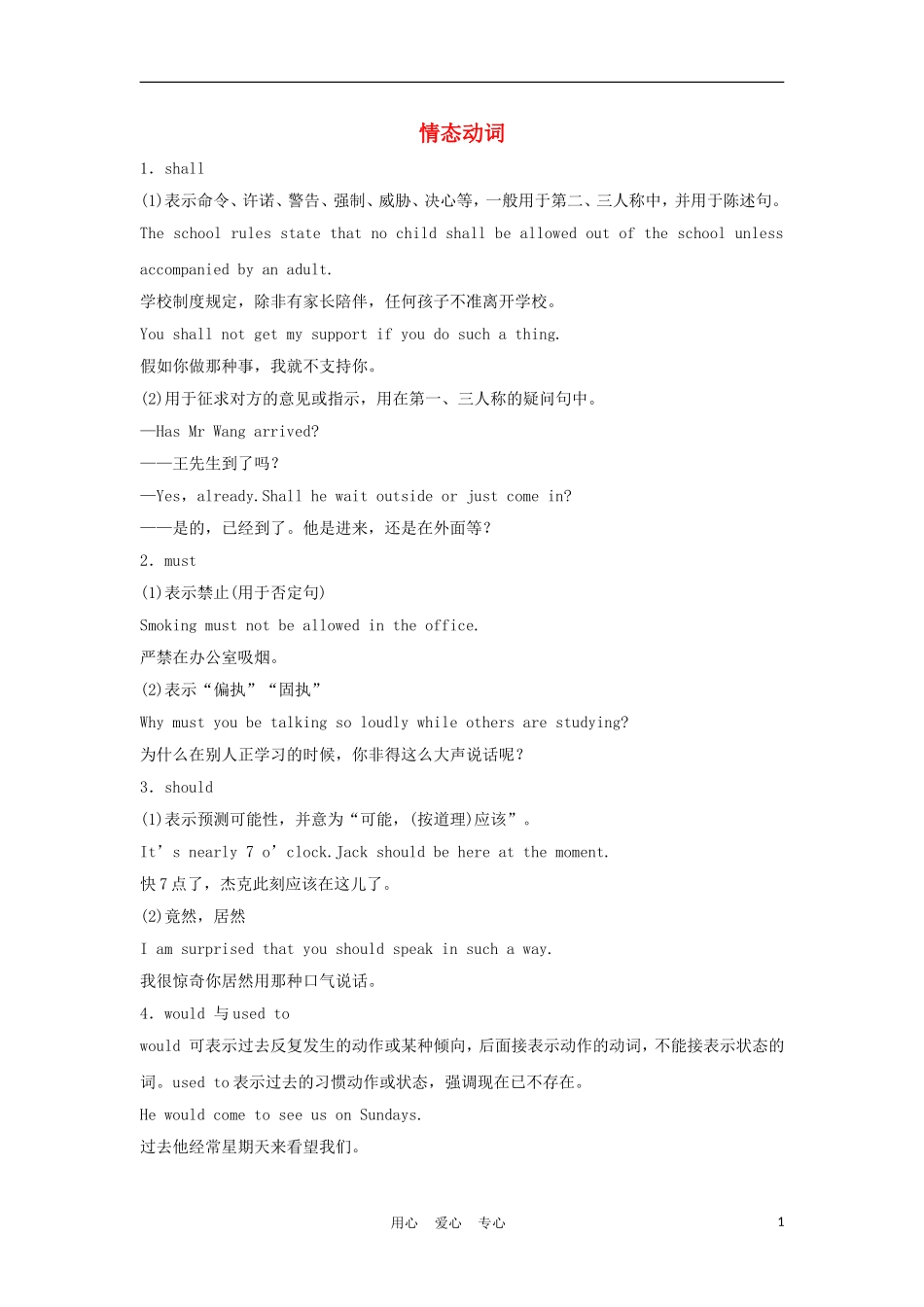情态动词1.shall(1)表示命令、许诺、警告、强制、威胁、决心等,一般用于第二、三人称中,并用于陈述句。The school rules state that no child shall be allowed out of the school unless accompanied by an adult.学校制度规定,除非有家长陪伴,任何孩子不准离开学校。You shall not get my support if you do such a thing.假如你做那种事,我就不支持你。(2)用于征求对方的意见或指示,用在第一、三人称的疑问句中。—Has Mr Wang arrived?——王先生到了吗?—Yes,already.Shall he wait outside or just come in?——是的,已经到了。他是进来,还是在外面等?2.must(1)表示禁止(用于否定句)Smoking must not be allowed in the office.严禁在办公室吸烟。(2)表示“偏执”“固执”Why must you be talking so loudly while others are studying?为什么在别人正学习的时候,你非得这么大声说话呢?3.should(1)表示预测可能性,并意为“可能,(按道理)应该”。It’s nearly 7 o’clock.Jack should be here at the moment.快 7 点了,杰克此刻应该在这儿了。(2)竟然,居然I am surprised that you should speak in such a way.我很惊奇你居然用那种口气说话。4.would 与 used towould 可表示过去反复发生的动作或某种倾向,后面接表示动作的动词,不能接表示状态的词。used to 表示过去的习惯动作或状态,强调现在已不存在。He would come to see us on Sundays.过去他经常星期天来看望我们。用心 爱心 专心1Our company used to do business with theirs.过去我们公司和他们的公司常有业务往来。5.can 和 could 的用法(1)表示惊讶,常用在否定句和疑问句中。How could you do such a silly thing?你怎么能做那样的蠢事呢?(2)cannot...too/enough 表示“无论……也不过分”“越……越好”。You can’t be too careful while driving.开车时越小心越好。6.will 与 would(1)表示自愿做或主动提出做什么,如意志、愿望或决心等。would 用于过去的情况。I have told him again and again to stop smoking,but he won’t listen.我一再告诉他戒烟,但是他就是不听。(2008·北京卷)John promised his doctor he would not smoke,and he never smoked ever since.约翰答应医生不再吸烟...


